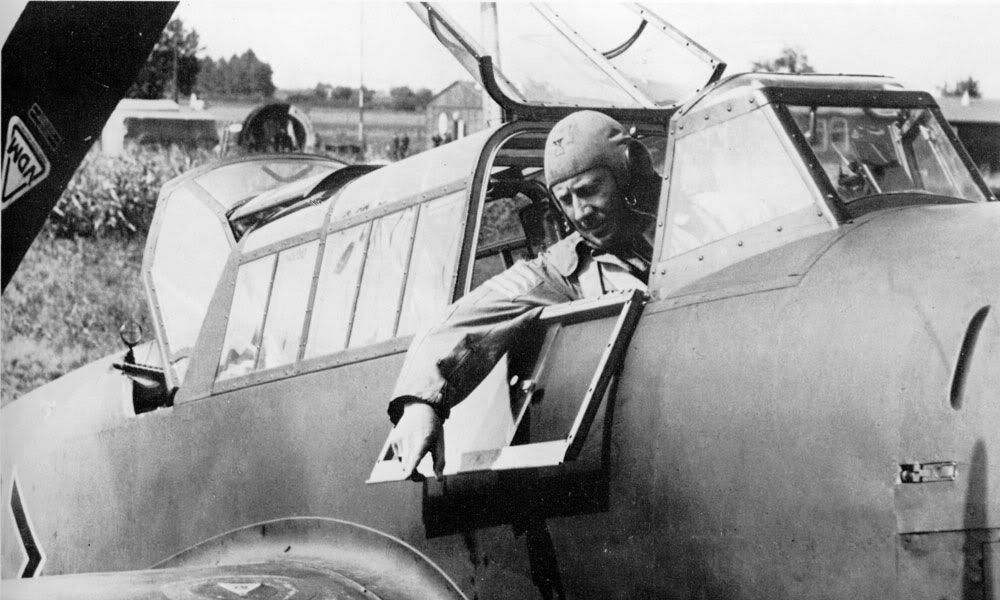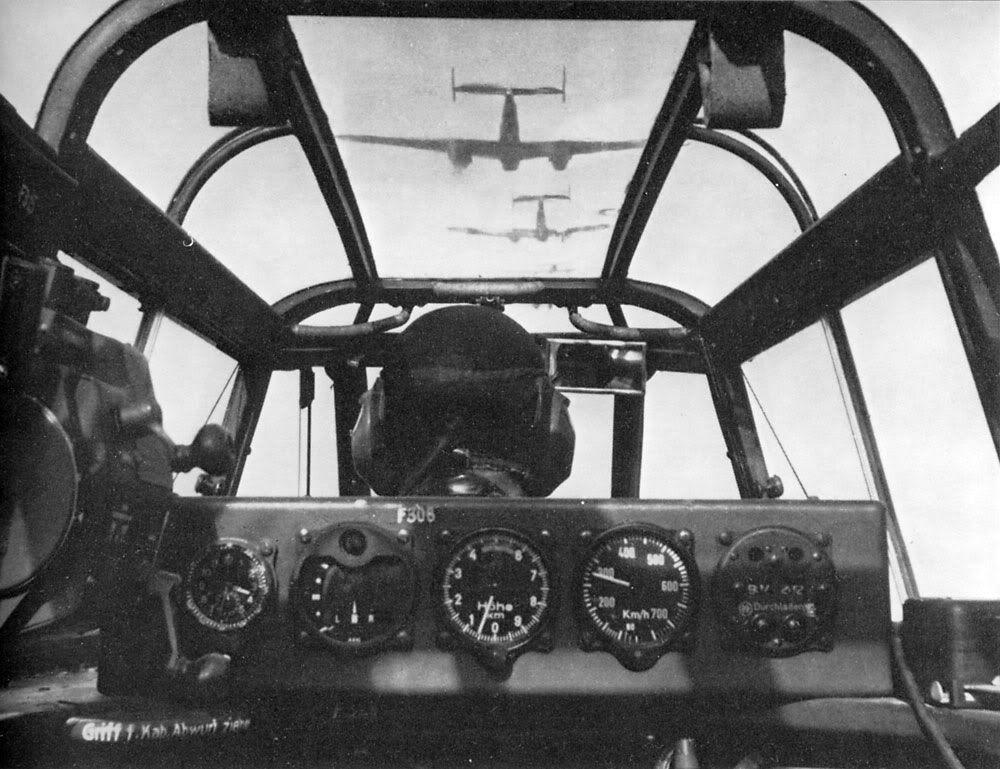Part 43 and Happy New Year.
October, 1940
BOMBING BERLIN
BY A SERGEANT PILOT
This account of a raid on Berlin is by an Irish sergeant-pilot who was recently awarded the Distinguished Flying Medal for good work done over Germany. More recently still he carried out a daring attack against an important military objective in Berlin.
If a bomber crew are to be successful in all they undertake it is essential that they should work as one man. My crew are an excellent team and that is one of the main reasons why we were able to pull this attack off satisfactorily. When I was at school I was often told that if an Irishman, a Scotsman and an Englishman lived together in one room it would not be long before they fell out. I am glad to say that this does not apply to my team, perhaps because there are two Irishmen to keep the peace.
So much depends on the navigator that it is just as well that I should tell you straight away that it is he who comes from the same country as myself. The rear gunner is the Scotsman and the wireless operator the Englishman. The rear gunner and myself are more or less R.A.F. "veterans". We have both been in the service about five years. The navigator joined up straight from school and the wireless operator gave up his job as a clerk to undertake what he calls "more exciting work".
This was my first official visit to the German capital. I was over it once before, but that was after I had been attacking a target at Stettin. Afterwards we all thought it would be rather fun to make the Berliners go underground, so on our way home we flew over the city and made the ground defences waste a lot of energy and ammunition for nothing. But the flight I am going to tell you about was a great deal more thrilling than the raid on Stettin.
This time on our arrival over Berlin we ran into a fierce barrage; shells were bursting all over the place, but in spite of this we spent about forty-five minutes over the capital before we dropped our bombs. We explored the city thoroughly and eventually found the target we were after.
All the time I was manipulating the stick, the navigator was busy getting a decent pinpoint, while the other two members of the crew were giving me advice on which way to go in to avoid the ack-ack. We were then fairly high up, but the shells were still bursting pretty close to us. None of them actually rocked the aircraft, but two were close enough for us to hear them burst.
There was a slight ground haze over the city but the moon penetrated it and showed up all we wanted to see. Suddenly, through the intercommunication system and above the roar of the engines, I heard the navigator say: "I am sure that's the target." Having complete confidence in him, I had no hesitation in shoving the stick forward and the nose of the aircraft down. Just before we went down I said to the crew: "All right, down we go," and just as we started I thought of my crew hanging on for dear life. We had been talking about dive attack for at least an hour before we got to Berlin. During the dive, which was made at a good speed, I had the target in the gun-sight and I held it there. All the time the target was getting bigger and bigger. Then I shouted "let them go" and the bomb-aimer pressed the button. As soon as the bombs burst all the anti-aircraft guns opened up and every ten or twelve seconds we felt the most colossal bumps and the machine was jockeyed about all over the place. At first I started to climb, then to avoid the shells I had to dive again, then climb, then go from side to side, then do stall turns, then up, then another dive. This business of going up and down went on five or six times. One thing I am certain of is that I wouldn't dare to throw the aircraft about in daylight as I did that night.
At one moment I saw a balloon go up in flames. Fire from the guns on the ground must have hit it. Actually I did not see the balloon until it caught fire; there was a flash and the whole thing was ablaze. We were only thirty yards away at the time and the cable down, whilst some of the burning fabric was sliding right in front of us. One of the chaps said that it reminded him of the Indian rope trick. In the end the cable fell clear of us, and we all thought afterwards what a good thing it was that a shell had hit it. Twenty minutes later we were right out of the barrage and setting course for home.
Pics have nothing to do with the story this week.
A couple of shots of Me 110�s as they feature heavily in Oleg�s SoW updates - real ones though.

Hauptmann Reinecke of Stab 1./ZG 76, about to start up his 110.

110C�s of ZG 26 en route for England.